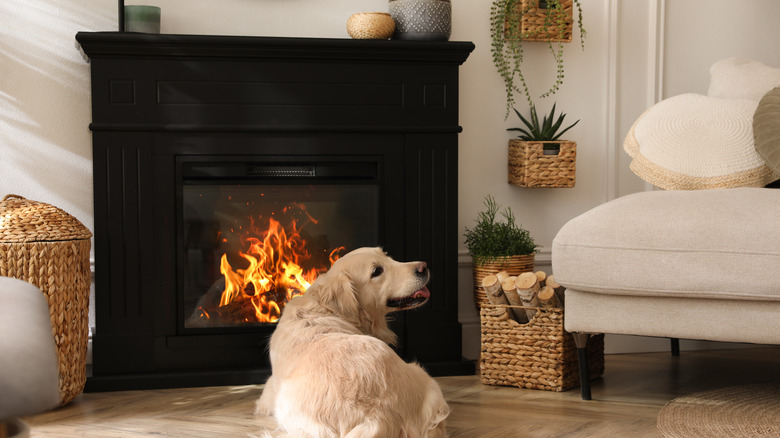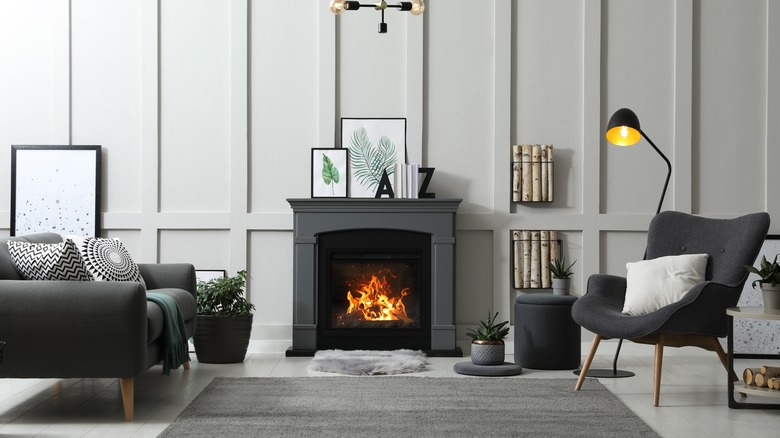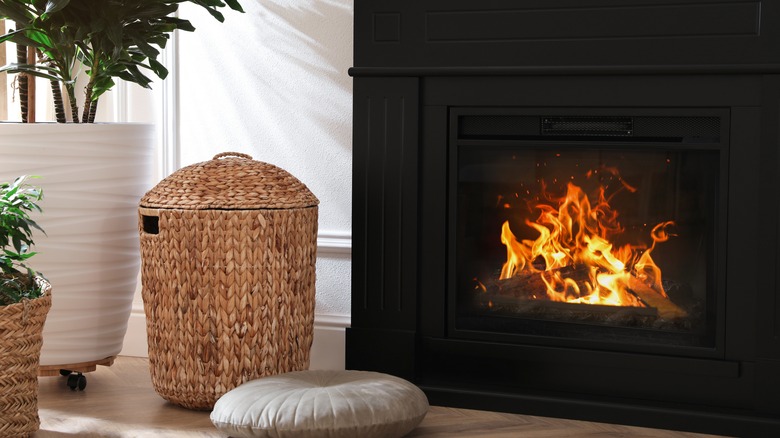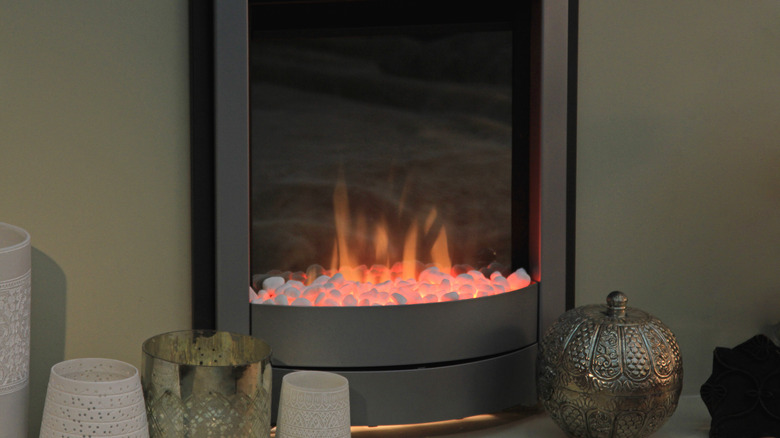The Hidden Costs Of Electric Fireplaces: Maintenance And Longevity
We may receive a commission on purchases made from links.
It's almost snow season again and many new homeowners are rushing to make sure their homes are ready for cold. If you live in an area where snow is expected, you might be thinking about all the ways that you can stay warm (without breaking the bank).
Aside from investing in heating systems, weather stripping, and insulation, a fireplace can add both warmth and ambiance to your home. In 2018, the National Association of Home Builders claimed that 41% of single-family homes that were being constructed included fireplaces and it's definitely for good reason. In fact, the right fireplace could potentially increase your home's resale value, according to Forbes.
While traditional fireplaces have been an integral part of many cultures, a growing number of people are looking to install electric fireplaces instead. Unlike traditional fireplaces, electric fireplaces generate heat without the risks and hassle of real fire. With this, it's a great alternative for homes with pets, children, or the elderly. Additionally, some electric fireplaces have LED screens that can simulate fire to keep some part of the experience still.
So, if you're thinking about adding an electric fireplace to your home, here's how much you can expect to spend.
How much do electric fireplaces cost?
Depending on the type and quality of the fireplace, the cost of adding an electric fireplace to your home can range from affordable to jaw-droppingly expensive. Fixr shares that the national average for electric fireplace installation, which includes the unit and electrician to wire it, is $750.
While this number may not seem so absurd, Fixr does acknowledge that homeowners who want a custom, built-in installation that requires added electrical, tile, and masonry work can expect to spend up to $10,000. In fact, Dreifuss Fireplaces notes that the cost of an electric fireplace before installation can be nearly doubled for commercial-grade models with prices going up as high as $20,000.
Aside from installation, prospective electric fireplace owners need to take other factors into account. While it's obvious that electric fireplaces are going to increase your electricity bill, there are some hidden costs that can also affect the cost of ownership with time. So, if you're in the market for a fireplace in your new home, here are some things you should definitely consider.
Maintaining an electric fireplace
Comparatively, electric fireplaces typically have more manageable upkeep than their traditional counterparts, especially because they don't require constant wood supply. Because they don't produce soot, they're not nearly as dusty and don't require an exhaust.
However, electric fireplaces still need regular cleaning, especially if you want them to look Instagram-worthy. While most people can handle wiping down their exteriors with no problem, you may require assistance for cleaning the heater inlets/outlets. If dust is allowed to gather here, it can cause the heater to overheat. When cleaning your electric fireplace, make sure to disconnect your power to avoid getting electrocuted.
If you decide to get a fireplace with a realistic-looking fire, you may need to occasionally change the LED screen that comes with it. As for any light bulbs, it will probably need replacing every few years.
In general, you should get your electric fireplace's wiring checked annually, to avoid any unexpected issues when you need it the most. You may also need to occasionally hire professional maintenance services to address any major component issues.
According to Anderson Fireplace, an electric fireplace has an average lifespan of 10 to 20 years. While manufacturers or retailers will offer a warranty, this period and exact coverage will vary per electric fireplace model. For example, retailers like Walmart usually offer at least a one-year warranty for their products and give the option to extend their protection for up to three years.
Is an electric fireplace still right for you?
Aside from the cost savings, there are plenty of reasons you may want to opt for an electric fireplace instead. Because they have zero carbon or greenhouse gas emissions and are 100% energy efficient in their heat generation, electric fireplaces are considered eco-friendly.
However, as The Bio Flame notes, it's possible the electricity used to power electric fireplaces still requires the use of coal or natural gas. So, if you're really concerned about reducing your carbon footprint, exploring solar power options for your home might be on the table.
Regardless of what kind of fireplace you get, it's best to avoid mounting any sort of electronic device on top of it, especially television sets. Not only can the heat cause damage to your TV, but it's also not good for optimal viewing. Although, you can watch Marvel fireplace videos in the meantime while your fireplace is under renovation.



